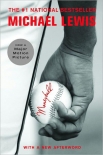Moneyball by Lewis, Michael (books to read in your 30s TXT) 📗

Book online «Moneyball by Lewis, Michael (books to read in your 30s TXT) 📗». Author Lewis, Michael
Darnell Coles. Cecil Espy. Erik Erickson. Garry Harris. Billy Beane. One of the scouts turns to another and says: I’ll take the three black kids [Coles, Harris, Espy]. They’ll dust the white kids. And Espy will dust everyone, even Coles. Coles is a sprinter who has already signed a football scholarship to play wide receiver at UCLA. That’s how fast Espy is: the scouts are certain that even Coles can’t keep up with him.
Gillick drops his hand. Five born athletes lift up and push off. They’re at full tilt after just a few steps. It’s all over inside of seven seconds. Billy Beane has made all the others look slow. Espy finished second, three full strides behind him.
And as straightforward as it seems—what ambiguity could there possibly be in a sixty-yard dash?—Gillick is troubled. He hollers at one of the scouts to walk off the track again, and make certain that the distance is exactly sixty yards. Then he tells the five boys to return to the starting line. The boys don’t understand; they run you first but they usually only run you once. They think maybe Gillick wants to test their endurance, but that’s not what’s on Gillick’s mind. Gillick’s job is to believe what he sees and disbelieve what he doesn’t and yet he cannot bring himself to believe what he’s just seen. Just for starters, he doesn’t believe that Billy Beane outran Cecil Espy and Darnell Coles, fair and square. Nor does he believe the time on his stopwatch. It reads 6.4 seconds—you’d expect that from a sprinter, not a big kid like this one.
Not quite understanding why they are being asked to do it, the boys walk back to the starting line, and run their race all over again. Nothing important changes. “Billy just flat-out smoked ‘em all,” says Paul Weaver.
When he was a young man Billy Beane could beat anyone at anything. He was so naturally superior to whomever he happened to be playing against, in whatever sport they happened to be playing, that he appeared to be in a different, easier game. By the time he was a sophomore in high school, Billy was the quarterback on the football team and the high scorer on the basketball team. He found talents in himself almost before his body was ready to exploit them: he could dunk a basketball before his hands were big enough to palm it.
Billy’s father, no athlete himself, had taught his son baseball from manuals. A career naval officer, he’d spend nine months on end at sea. When he was home, in the family’s naval housing, he was intent on teaching his son something. He taught him how to pitch: pitching was something you could study and learn. Whatever the season he’d take his son and his dog-eared baseball books to empty Little League diamonds. These sessions weren’t simple fun. Billy’s father was a perfectionist. He ran their pitching drills with military efficiency and boot camp intensity.
Billy still felt lucky. He knew that he wanted to play catch every day, and that every day, his father would play catch with him.
By the time Billy was fourteen, he was six inches taller than his father and doing things that his father’s books failed to describe. As a freshman in high school he was brought up by his coach, over the angry objections of the older players, to pitch the last varsity game of the season. He threw a shutout with ten strikeouts, and went two for four at the plate. As a fifteen-year-old sophomore, he hit over .500 in one of the toughest high school baseball leagues in the country. By his junior year he was six four, 180 pounds and still growing, and his high school diamond was infested with major league scouts, who watched him hit over .500 again. In the first big game after Billy had come to the scouts’ attention, Billy pitched a two-hitter, stole four bases, and hit three triples. Twenty-two years later the triples would remain a California schoolboy record, but it was the way he’d hit them that stuck in the mind. The ballpark that day had no fences; it was just an endless hot tundra in the San Diego suburbs. After Billy hit the first triple over the heads of the opposing outfielders, the outfielders played him deeper. When he hit it over their heads the second time, the outfielders moved back again, and played him roughly where the parking lot would have been outside a big league stadium. Whereupon Billy hit it over their heads a third time. The crowd had actually laughed the last time he’d done it. That’s how it was with Billy when he played anything, but especially when he played baseball: blink and you might miss something you’d never see again.
He encouraged strong feelings in the older men who were paid to imagine what kind of pro ballplayer a young man might become. The boy had a body you could dream on. Ramrod-straight and lean but not so lean you couldn’t imagine him filling out. And that face! Beneath an unruly mop of dark brown hair the boy had the sharp features the scouts loved.





Comments (0)